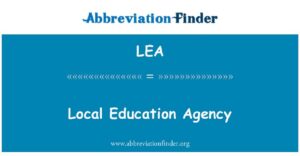Choosing the Best School Sexuality Education Programs

School sexuality education programs across America aim to educate young people about their bodies and sexual health. Furthermore, they provide them with the knowledge and skillset necessary for making healthy decisions about their sexuality and relationships.
Selecting the Best School Sexuality Education in Chicago
There are a number of organizations that strive to provide comprehensive, safe and supportive sexuality education in schools. These programs may have various curricular approaches that can meet the needs of different students and communities; from traditional abstinence-only curriculums to inclusive socially progressive teaching styles that reflect how sexuality is experienced and understood.
In addition to cultivating positive relationships, good sexuality education helps students feel accepted and respected by their peers and community. It can prevent bullying or other forms of abuse, while providing them with awareness of the risks involved with unhealthy sexual behavior and its repercussions.
A new handbook for educators provides guidelines to promote sex-based curricula that go beyond simply sexual activities, including topics such as consent, gender-based violence, personal safety and dating violence. Written by an educator who works with youth in schools across America, this manual offers guidance to educators looking to implement such initiatives.
This book is the result of three decades worth of research that demonstrates the power of effective sex education curricula. Studies have demonstrated they can increase student acceptance of gender nonconformity and reduce homophobic bullying, among other outcomes.
Illinois has a state law that requires all school districts to teach sex education. Unfortunately, school administrators and parents are increasingly opting out of this instruction, which is largely based on standards set by the National Association for the Education of Young Children.
Districts facing compliance with the new standards may face difficulties. According to data compiled by Illinois’ State Board of Education, only 20 out of Illinois’ 534 public schools are fully adhering to these requirements; many others have either chosen not to teach sex or decided not to comply at all.
One of the major obstacles in implementing these new standards is school systems having to adjust their schedules to include additional instructional hours and allocate adequate resources for delivery. Teachers also need training on compliance with these standards, which are mandatory for all instructors teaching sex in Kentucky’s K-12 education system.
But the biggest hurdle lies in convincing parents to enroll their kids in sex ed classes. Despite Illinois’ state commitment to new standards, only 30 percent of teachers have received sex-education training. And only a fraction of those who did have such instruction reported feeling “very comfortable” discussing adolescents’ bodies and sexuality with them.
Governor JB Pritzker recently signed a law that requires all school districts to begin teaching sex education for the first time in six through 12th grades, adhering to national standards. These standards, known as the National Sex Education Standards, emphasize that sex education should not focus on abstinence but rather health and safety. Furthermore, these mandates stipulate age-appropriate methods of providing information regarding contraception and consent;







